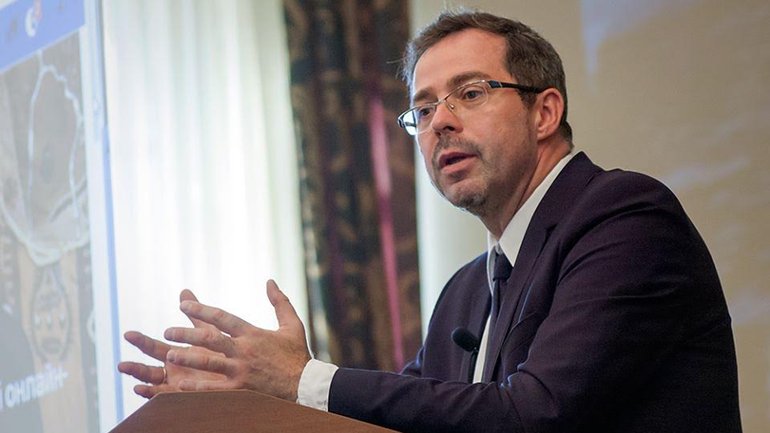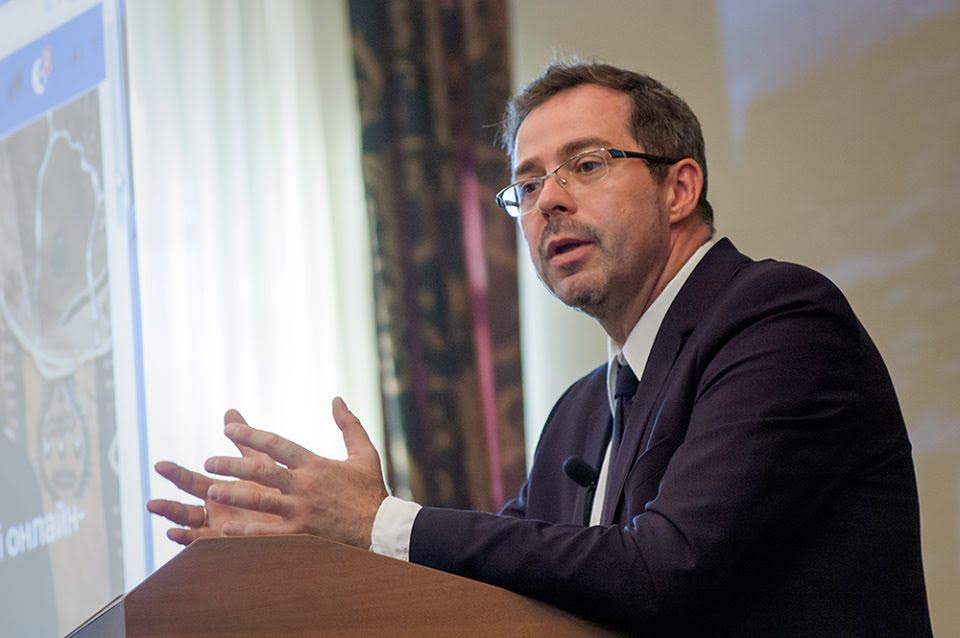Ukraine’s Orthodox environment resembles the situation of 90s, Chair of State Religion Department Andriy Yurash

Ukraine Orthodox environment resembles that of the 90s with its attempts to preserve the current situation. Instead, society needs the transition from contemplation of the situation to decisive steps. Andriy Yurash, Chair of the Department for Religious Affairs to the Ministry of Culture, was reported as saying this in his lecture at the Open Orthodox University of St. Sophia on Thursday, June 30.

In his view, the origins of Orthodox problems in Ukraine date back at least to the early twentieth century, if not to the events of the 17th century. The main trend that distinguished all the change processes in Ukrainian Orthodoxy was government interference in the situation and attempts to solve it in the most appropriate manner. Instead, today the context has emerged that is unique even for the independence period, under which the State can influence the Orthodox drama only jointly with society.
The Department Chairmansaid that the three key changes that the Ukrainian community is undergoing can attest to this. First, public policy is finally moving away from the reflex response to challengesto a systematic and analytical approach. So far, it has been a tradition to all previous experience at the coming of a new government, which does not always lead to changes. Instead, while previously the authorities answered only tothe local needs of citizens, now an attempt is made to determine a common vector of development.
Second, the professionalsfinally started workingin reforming of the religious environment. This dramatically changed the situation when members of the political elite behaved as neophytes trying to change things without much interference in church-state relations. Now Professor Victor Yelenskyy, a renowned religious sociologist, who is working on important initiatives, is a member of Parliament. Thepersonnel of the Ministry of Culture have changed radically, now they include doctors, three candidates of science and graduate students. For the first time after five years the Advisory Boardwas, where 19 participants include 13 doctors and 4 candidates of science. All this, according to Andriy Yurash, indicates to a high level of experts, consistency of their work and most importantly - independence of external pressure or attempts to influence.
The third change is an important transition to decisive steps instead of simple contemplation of problems by political elites. The principle of equality before the law is being established. This differs from the attempts by some religious and political leaders to preserve the current situation in the religious environment that closely resembles a similar situation in the 90s.
“Neutrality in the field of religious issues is not evasion, as it is mistakenly believed,” the official stressed. “The efforts to preserve and consolidate the leadership position continue not only in the Orthodox sector, but also in other religious communities. However, this protective attitude will not result in success. After the events of the Revolution of Dignity we are confident that the religious situation mustchange according to social trends.”
Such changes and imbalance of the system can be traced in opinion polls of the last two years. In particular, the speaker compared the survey bythe sociological groups Socis, Rating, KIIS and the Razumkov Centre for 2015, DIF for 2015, and the latest survey by the Razumkov Centre for early 2016. The expert points out that today the religious environment has the same problems and divisions as in the 90s.
In particular, there is a discrepancy of the existing network of religious institutionsto society’s opinions and beliefs. According to polls, from 38 to 44% of believers identify themselves as members of the UOC-Kyiv Patriarchate and from 20 to 23% - to the Orthodox Church of the Moscow Patriarchate. At the same time,the number of active congregations differs dramatically.
Andriy Yurash warns that such existing imbalances and social division can lead to recovery of natural parameters, i.e. dramatic changes. Their onset can be seen in the local jurisdiction transitions in Orthodox communities, 112 of which have been formally registered lately.
Such imbalance is hidden in the responses to the questions of the Foundation for Democratic Initiatives in 2015 about the attitude of believers to different churches. Thus, 37% of respondents believe the UOC KP to be the national church of Ukraine and only 7% - have negative attitude towards it or call itschismatic. However, 19.2% of respondents perceive the UOC (MP) as a representative of the Church of aggressor state and only 10% - as patriots of Ukraine. Although a relatively high proportion of believers remains indifferent to this issue (from 31 to 41%) at the backdrop of constant demand for the creation of a local church - 28% of respondents spoke in favor and only 14% - against.
It should be noted that in late May the Razumkov Centre presented new research data on the religious situation in Ukraine in early 2016. You will find the main trends on the link.









